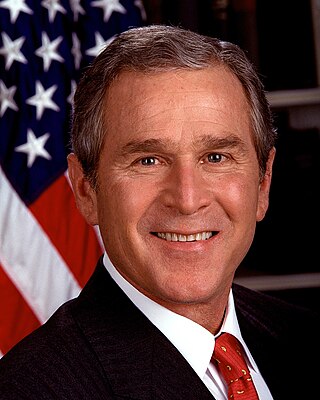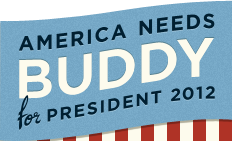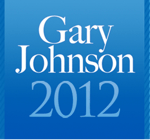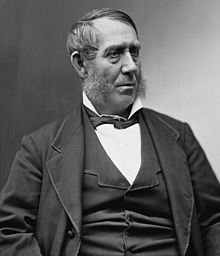
The Iowa caucuses are quadrennial electoral events for the Democratic and Republican parties in the U.S. state of Iowa. Unlike primary elections, where registered voters cast ballots at polling places on election day, Iowa caucuses are meetings where voters gather to discuss and select candidates for their registered party. Political parties hold the caucuses, in contrast to most state-run primaries. Both presidential and midterm elections in Iowa use caucuses. The caucuses are also held to select delegates to county conventions and party committees, among other party activities.

The Kansas Republican Party is the state affiliate political party in Kansas of the United States Republican Party. The Kansas Republican Party was organized in May 1859.

The results of elections in the state of New York have tended to be more Democratic-leaning than in most of the United States, with in recent decades a solid majority of Democratic voters, concentrated in New York City and some of its suburbs, including Westchester County, Rockland County and Long Island's Nassau county, and in the cities of Buffalo, Rochester, Syracuse, Albany, and Ithaca.
The following is a timeline of major events leading up to and immediately following the United States presidential election of 2008. The election was the 56th quadrennial United States presidential election. It was held on November 4, 2008, but its significant events and background date back to about 2002. The Democratic Party nominee, Senator Barack Obama of Illinois, defeated the Republican Party's nominee, Senator John McCain of Arizona.

The 2008 Iowa Republican presidential caucuses took place on January 3, 2008. The Iowa Republican caucuses are an unofficial primary, with the delegates to the state convention selected proportionally via a straw poll. The Iowa caucuses mark the traditional formal start of the delegate selection process for the 2008 United States presidential election.

The Iowa Straw Poll was a presidential straw poll and fundraising event for the Republican Party of Iowa. It was held six times, traditionally in late summer approximately six months in advance of contested presidential Iowa caucuses, from 1979 until 2011, on the campus of Iowa State University in Ames.

The 2008 United States presidential election in Iowa took place on November 4, 2008, as part of the 2008 United States presidential election. Voters chose seven representatives, or electors to the Electoral College, who voted for president and vice president.

The Nevada presidential caucuses are an electoral event in which citizens met in precinct caucuses to elect delegates to the corresponding county conventions. In 2021, Harry Reid passed legislation (AB321) to include primaries in hopes of increasing voter turn-out. Nevada has for decades and still does have a caucus. The caucus is where the delegates receive the votes that will be carried to the National Convention and not the primaries. There are 17 counties in Nevada and the state has 26 delegates. The Nevada caucuses began in 1981. The Kerry/Dean caucus was held on February 14, 2004. In 2008 the DNC gave Nevada the official first in the west status reflecting the growing importance of the West as well as Nevada's electoral bellwether status. The 2008 Nevada caucuses were the third major electoral event in the nominating process for President of the United States. In 2016, the Democratic caucus was held on February 20 and the Republican caucus was held on February 23.

Elections in Vermont are authorized under Chapter II of the Vermont State Constitution, articles 43–49, which establishes elections for the state level officers, cabinet, and legislature. Articles 50–53 establish the election of county-level officers.
The following is a timeline of major events leading up to the United States presidential election of 2012. The election was the 57th quadrennial United States presidential election held on November 6, 2012.

Voters of the Republican Party elected state delegations to the 2012 Republican National Convention in presidential primaries. The national convention then selected its nominee to run for President of the United States in the 2012 presidential election. There were 2,286 delegates chosen, and a candidate needed to accumulate 1,144 delegate votes at the convention to win the nomination. The caucuses allocated delegates to the respective state delegations to the national convention, but the actual election of the delegates were, many times, at a later date. Delegates were elected in different ways that vary from state to state. They could be elected at local conventions, selected from slates submitted by the candidates, selected at committee meetings, or elected directly at the caucuses and primaries.

The 2000 Iowa Republican presidential caucuses took place on January 24, 2000. The Iowa Republican caucuses are an unofficial primary, with the delegates to the state convention selected proportionally via a straw poll. The Iowa caucuses marked the traditional formal start of the delegate selection process for the 2000 United States presidential election.

The 2012 presidential campaign of Buddy Roemer, 52nd Governor of Louisiana and former U.S. Representative of Louisiana began as a movement for the 2012 Republican Party nomination for President of the United States shortly following the 2010 midterm elections. After his exclusion from every nationally televised Republican debate, Roemer announced on February 22, 2012, that he would instead pursue a place on a third-party ticket, specifically the Reform Party and Americans Elect nominations. Shortly after Americans Elect announced they would not be fielding a candidate, Roemer's campaign announced on May 31, 2012, that he was ending his 2012 presidential campaign altogether.

The 2012 presidential campaign of Gary Johnson, the 29th governor of New Mexico, was announced on April 21, 2011. He declared his candidacy for the 2012 Republican Party nomination for President of the United States. On December 28, 2011, Johnson withdrew his candidacy for the Republican nomination, and declared his candidacy for the 2012 presidential nomination of the Libertarian Party. The 2012 Libertarian National Convention was held during the first weekend of May 2012. On May 5, 2012, after promoting his libertarian-oriented political positions to delegates, Johnson received the most votes at the convention and became the official 2012 Libertarian presidential nominee. On November 6, 2012, Johnson received just under 1% of the popular vote in the general election, amounting to more than 1.2 million votes, more than double what the Barr/Root ticket received in 2008. This was the most successful result for a third-party presidential candidacy since 2000, and the best in the Libertarian Party's history by vote number at the time. Johnson ran again in 2016 and received nearly four times his 2012 vote total.

The 2012 Iowa Republican presidential caucuses took place on January 3, 2012.

The 1996 Iowa Republican presidential caucuses were held on February 12, 1996. The Iowa Republican caucuses are an unofficial primary, with the delegates to the state convention selected proportionally via a straw poll. The Iowa caucuses marked the traditional formal start of the delegate selection process for the 1996 United States presidential election.

The 2016 United States elections were held on Tuesday, November 8, 2016. Republican nominee Donald Trump defeated Democratic former Secretary of State Hillary Clinton in the presidential election, while Republicans retained control of Congress. This marked the first time Republicans won or held unified control of the presidency and Congress since 2004, and would not do so again until 2024.

The 2012 Maine Republican presidential caucuses were held between Sunday, January 29, and Saturday, March 3, at various locations throughout the state of Maine. Presidential preference polls were held at the caucuses, but those polls were not binding on the choices of delegates to the Maine Republican Party convention. The caucuses chose delegates in processes separate from the straw polling.

The 2000 presidential campaign of Orrin Hatch, a U.S. senator from Utah, officially began on July 1, 1999, with the establishment of an exploratory committee. Hatch had been a senator since 1977 and at the time of his announcement he was a high-ranking official on several Senate committees, most notably the chairman for the Senate Judiciary Committee. He had established himself as a conservative Republican who was known to work with liberal Democrats on major bipartisan bills, such as the 1997 Children's Health Insurance Program bill. From the beginning of his campaign, Hatch stressed his experience in federal government and attacked the perceived lack of experience of the Republican frontrunner, Texas governor George W. Bush. However, numerous commentators noted that Hatch's campaign was unlikely to succeed, due to his late entry into the race and Bush's dominant position in fundraising and opinion polling. Throughout his campaign, Hatch struggled to raise money and consistently polled in the single digits. In January 2000, he came in last place in the Iowa caucuses and announced on January 26 that he was ending his campaign, supporting eventual nominee Bush, who would go on to win the 2000 United States presidential election. Hatch remained in the Senate for several more years following his campaign and in 2015, as the most senior member of the Senate, he became the president pro tempore. In 2019, he decided to retire, ending his 42-year career as the most senior Republican senator ever before dying in 2022.
Michael Gordon Francis is an American politician and businessman from Crowley, Louisiana. He is currently a member of the Louisiana Public Service Commission from the 4th district. Prior to his election to the Public Service Commission, he was the Chairman of the Republican Party of Louisiana from 1994 until 2000.


























